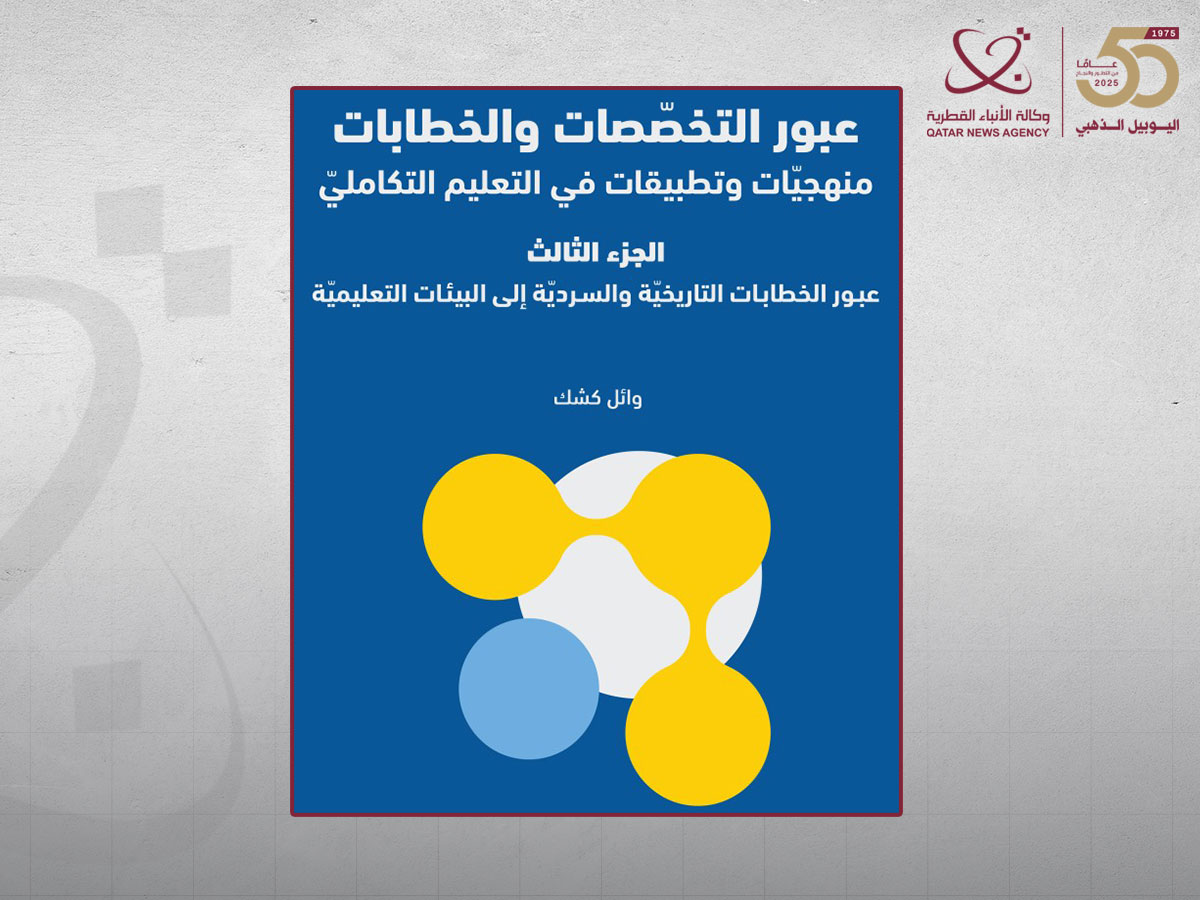Doha, October 14 (QNA) – The Doha Institute for Graduate Studies (DI) has launched the third volume of the groundbreaking book on crossing specializations and discourses: methodologies and applications in integrative education.
This genre is authored by Dr. Wael Keshk, titled crossing historical and narrative discourses into educational environments, a compelling addition that further consolidates the project’s integrated pedagogical vision.
This latest volume marks a significant stride forward in developing a holistic educational methodology that gives priority to critical thinking, visual and historical analysis, and narrative comprehension.
By interlinking all four volumes, the genre presents a comprehensive educational framework that empowers both students and teachers to leverage acquired knowledge and skills through dynamic, multidimensional approaches, thereby enriching the learning process and enhancing its effectiveness, responsiveness, and interaction with the complex challenges of the modern age.
The book redefines the teacher’s role, not as a mere conveyor of information, but as a mentor and guide who leads learners toward deeper understanding.
By engaging the historical and narrative discourses, the work broadens the traditional educational horizon, allowing learners to delve into past experiences and uncover the profound meanings of events and stories from both social and cultural perspectives.
Comprising three principal sections encompassing nine interconnected chapters, the volume’s first part lays the philosophical and historical foundations of integrative and communicative knowledge.
The second section explores methods of activating historical discourse in classrooms through analytical engagement with speeches, images, documents, and historical films, offering applicable classroom tasks and activities.
The third section delves into narrative discourse in its multiple manifestations, mythic, storytelling, and novelistic, illustrating how these dimensions can be harnessed to stimulate imagination, reinforce critical inquiry, and link knowledge with cultural and social realities.
With this release, the Tarshid educational series flashes decades ahead in its endeavor to deliver scientifically grounded, professionally refined, and intellectually resonant content, strengthening Arab educational thought and equipping educators with conceptual and practical instruments to construct learning environments of greater awareness, interaction, and effectiveness, a mission that continues to embody the sublime precepts of transformative education and its power to reshape minds and societies alike. (QNA)

